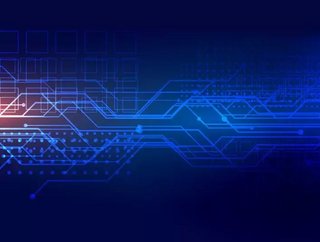Leidos: Building trusted, secure, and safe AI systems

“Leidos’ mission is to make the world safer, healthier and more secure. We take on some of the world's most interesting, challenging and data-centric problems,” says Ron Keesing, VP of AI and Machine Learning. Formerly known as Science Applications International Corporation (SAIC), the company was officially founded in 1969. Eventually splitting into two entities in 2013, Leidos (from ‘kaleidoscope’) has subsequently taken on a host of high-profile projects for clients, including NASA’s next-gen lunar landers, “the world’s longest supply chain” with the National Science Foundation, and the entire health record system for the US Department of Defense (DoD).
Among the company’s core tech competencies is the development of artificial intelligence (AI) and machine learning, which it hopes to gradually incorporate into all of its solutions. Referring to Leidos’ participation in the DARPA ACE (Air Combat Evolution) programme, Keesing says, “We're essentially taking a technology that came from the commercial world and we're using it to transform aerial combat.” Inverting traditional battle paradigms, wherein many people would control a single platform or aircraft, the company uses AI so that one person can administrate multiple aerial assets, both manned and unmanned, during the course of a mission.
It can be easy to forget that the purpose of AI should be to augment or improve the lives and working conditions of people. However, this concept is central to Leidos’ mission, as Keesing explains: “We combine humans and machines to be able to perform these missions better and faster. Leidos’ role as an integrator of AI technology comes from many different sources and we bring them all together into solutions that the US Government can use. Currently, we're using AI to transform the processing of veterans’ health benefits to make sure they’re receiving improved healthcare through natural language processing (NLP). This will enable faster claims and benefits processing with much higher accuracy and speed than was possible before.”
Despite having devised so many cutting-edge applications, Keesing emphasises the importance of keeping up with the latest AI-based research and promoting understanding among clients regarding the best way to use it. This is a perspective shared by the DoD, as well as the USAF, which are cultivating AI-led workforces. “Many across the community are also starting to appreciate what it means for AI systems to be ethical; we wouldn't want systems making crucial mistakes that could put human safety at risk.” As such, Leidos believes in building trust between humans and AI in order to foster comprehension and encourage its wider application. This is particularly crucial in the digital era, when large volumes of Big Data can overwhelm those not equipped to manage it. In this particular arena, Keesing states, AI is significantly transformative. “AI can be a crucial tool by helping to replace highly manual processes, therefore allowing humans to focus on the most important and challenging problems that machines can't solve.”
Questions relating to the security of AI continue to be challenging for the tech sector as a whole, and Leidos, for its part, is dedicated to addressing them, particularly as AI becomes further integrated into its product portfolio. Therefore, Keesing closes by encouraging everyone from students to senior decision-makers to invest their attention in AI’s development. “This is such an exciting time for people thinking about launching careers in AI and machine learning; how people understand AI will affect their systems and platforms. Whether we want it or not, this technology is going to transform every aspect of our world and Leidos is staying ahead to make sure the systems we're building are safe, secure and can be trusted.”






